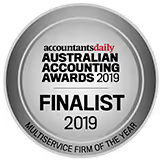The right time to pay down debt will always depend on your personal situation.
There are three key factors to consider when assessing the merits of paying down debt: first, your comfort level with debt. Second, the interest rates on your debt. And third, the tax effectiveness of your debt.
Your comfort with debt is the most important factor. Regardless of how cheap the interest rates on debt may be, if your debt levels are keeping you up at night, then you should prioritise working to pay off debt.
The interest rates on your debt will be the second key factor in when or if you pay down debt. In recent years, the cost of debt has become cheaper. Therefore, it can make sense to invest your excess cash flow rather than prioritise paying down your debt. For example, a home loan debt can be as low as 2%, while the return on investing in shares can be as high as 8% per annum. Paying down your home loan is the same as getting a 2% return on your money.
The other key consideration is the tax effectiveness of your debt. It can make sense to ensure you pay down non-tax-deductible debt over tax-deductible debt. This can mean paying down the loan on your primary place of residence rather than your investment property.








.png)
%2520(1).png)
%20160x160.avif)











.png)

